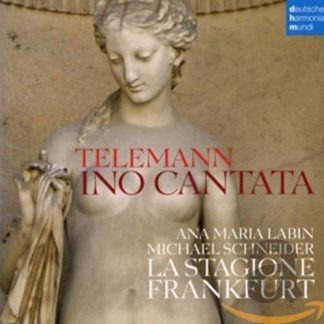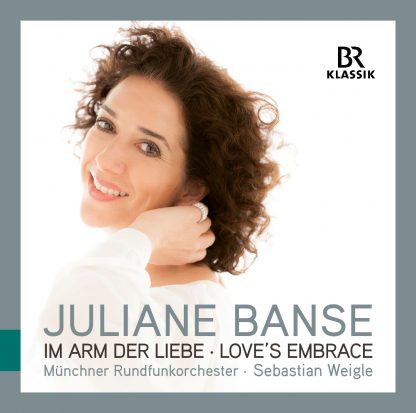Περιγραφή
Καλλιτέχνες
|
Juliane Banse’s current concept album, entitled “Love’s Embrace”, is devoted to orchestral Lieder of the early twentieth century and presents works and composers who have been very unjustly forgotten. The romantic lyrics have catchy melodies and lightweight orchestration; they are easily on a par with the well-known orchestral Lieder by Mahler or Strauss. An excellent opportunity to regain familiarity with Late Romantic orchestral Lieder by Hans Pfitzner, Joseph Marx, Walter Braunfels and Erich Wolfgang Korngold, and to experience them in exemplary interpretations. Towards the end of the nineteenth century, the Golden Age of the orchestral piano Lied and the original orchestral Lied had begun – with Hugo Wolf and, above all, Gustav Mahler. “Away with the piano!” was the latter’s fierce demand: “We moderns need a larger device to express our thoughts, whether great or small.” Richard Strauss, Hans Pfitzner, Erich Wolfgang Korngold and Max Reger thought and composed in very much the same manner as such now-forgotten and soon to be finally rediscovered masters as Joseph Marx or Walter Braunfels. In 1903, Pfitzner, for example, wrote his song “Infidelity and Consolation”, which alternated between the popular sound” and artistic contrapuntal ambitions, and then orchestrated it: a “German folk song” from the pen of an intensely cerebral composer. In contrast, the Six Simple Songs op 9, composed from 1911 onwards by Erich Wolfgang Korngold – a childhood as well as a teenage prodigy – are by no means “simple”; instead they are artificial, refined, lightweight, melodically extravagant and harmoniously dazzling. The Graz composer Joseph Marx, once the most-performed living Austrian composer, represents the aspect of modernity that usually comes under the heading of “Late Romantic”; like Hugo Wolf, he also wrote music for an “Italian songbook” after Paul Heyse. The highly delicate “Three Chinese Songs” composed in the world war year of 1914 by Walter Braunfels, who was open to all the fine arts, were written for soprano and orchestra from the outset – but not merely as a footnote to once-fashionable exoticism. Like Mahler with his “Song of the Earth,” Braunfels had been inspired by Hans Bethge’s “Chinese Flute”. Together with the Münchner Rundfunkorchester conducted by Sebastian Weigle, Juliane Banse recorded the orchestral Lieder in a studio production by the Bayerischer Rundfunk in March 2015. |











